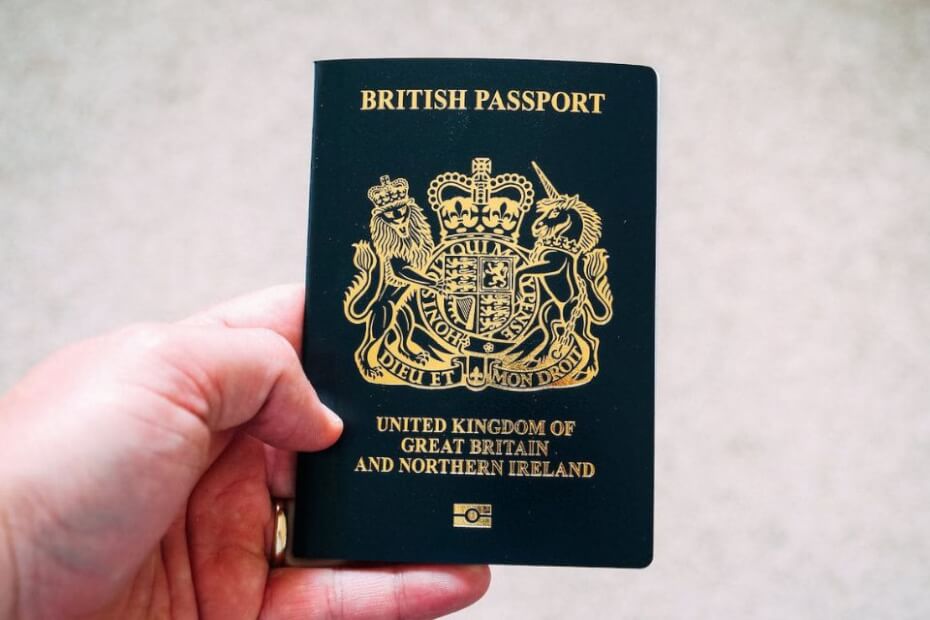
UK passport holders are currently facing issues with boarding due to the confusion surrounding Brexit rules.
There have been cases in 2023, as reported by The Independent, where British people have been wrongly denied boarding due to discrepancies in the regulations.
This has led to distress and financial losses for many.
Almost three years after Brexit, many UK travelers, including carriers, are still unaware of the updated passport validity rules.
Misleading and incorrect advice
Initially, the UK Foreign and Commonwealth Office and Home Office provided inaccurate information, stating that British passports expire after nine years and nine months.
The misinformation was briefly extended to imply that children’s UK passports were no longer valid after four years and nine months.
In November 2021, the EU reiterated the new post-Brexit rules for airlines and other concerned officials.
However, only in May 2022 did UK officials and ministers acknowledge the error. They have since corrected the government’s official advice.
Despite this correction, ground staff at UK airports turned away passengers unnecessarily, leading to distress and potential compensation claims.
Under EU regulations, affected passengers can claim £220 and a refund for their airfare. This can be done through the airline’s online portal.
Some airlines may refuse, citing past inaccurate advice from the UK government. However, this excuse is weak, as airlines were informed about the correct EU rules in 2021.
On the other hand, airlines typically do not compensate additional expenses, such as transportation to the airport or pre-booked hotels. Passengers may need legal action to obtain such claims.
UK passport validity for EU Travel
Most, if not all, passports have an expiry date, but not all passports are valid for travel until their expiry. This isn’t always the case.
Before the UK left the EU, British citizens could travel to the Schengen Area until their passports’ expiry date.
However, after Brexit, British nationals are now considered third-country nationals. This means they must have a passport to travel to the EU.
It also means that for their UK passports to be valid for travel to the EU, it must meet two conditions:
- The passports must not be over ten years old on the day of their outbound travel.
- On the return journey home, the passport must have at least three months before expiry.
British citizens are permitted to enter the Schengen area with only three months remaining in their passports’ validity. However, the UK government advises that their passports have at least six months before expiration.
This is crucial for a 90-day visa-free visit, or the maximum length of stay visa-free days a UK citizen can visit the Schengen area and most EU nations, including Switzerland, Norway, and Iceland, in a 180-day period.
Having six months left before passport expiry allows British citizens to travel to Europe in the maximum allowed time (90 days) and still exit with a valid passport.
British passport validity for travel outside the EU
When traveling elsewhere from the EU, passport requirements may be more strict.
Certain countries, especially in Asia and Africa, require that UK citizens have passports with a validity of six months beyond the departure date. This specifically applies to countries like China, Singapore, and Egypt.
Conversely, some nations have more lenient regulations. In places like Japan, Mexico, and Australia, for instance, your passport only needs to remain valid for the duration of your stay.
British travelers can check the specific entry requirements and passport validity on the UK Foreign Office website to avoid delays or refusals.
Passports and biometric technology
Many travel officials believe traditional paper documents, such as visas and passports, will be a thing of the past.
Many countries are turning to automated digital systems and biometric technology, such as fingerprints and facial scans, for identification and confirming permissions.
Germany’s Frankfurt Airport, UAE’s Dubai Airport, and Singapore’s Changi Airport are already using or set to use biometrics for automated authentication and contactless travel.
While a bit lagging behind, the UK already uses electronic passport gates (eGates) at some entry points. It is also transitioning its visas and immigration status to an electronic record or eVisa.
At the same time, the UK has started streamlining the immigration process for pre-verified, low-risk travelers with the UK Electronic Travel Authorization (ETA).

